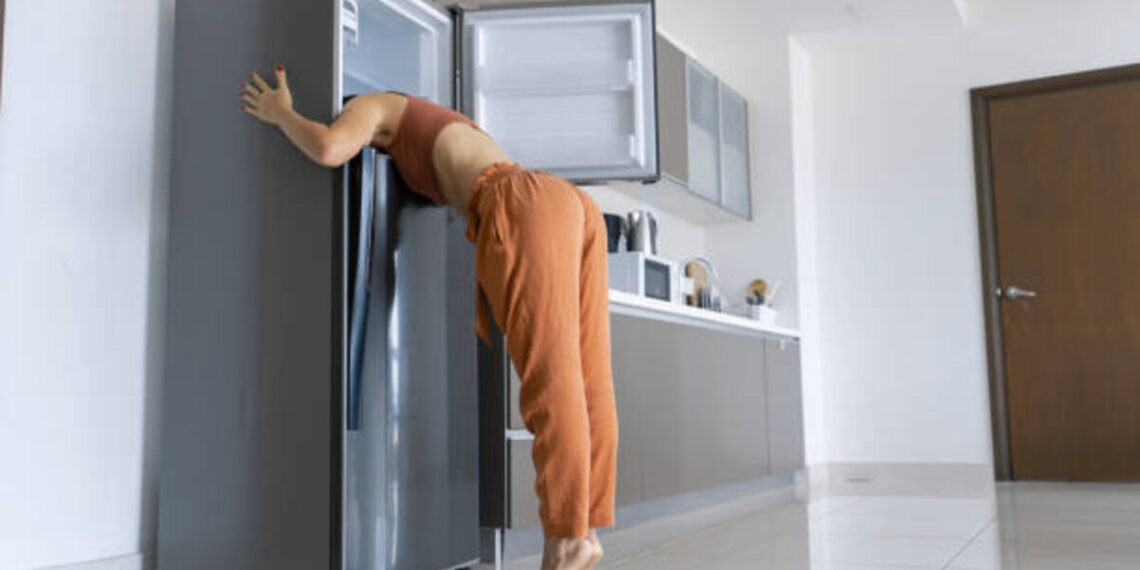Hey there! Have you ever asked yourself how the raw, edgy appearance of industrial design made the way from factories to homes and offices? Nicely, you’re in the right place. These days, we’re diving into the industrial elements and how these kinds are being used in some seriously amazing ways. So grab a snug chair, and let’s take a look at it! Get the Best information about قیمت المنت صنعتی.
What Exactly Are Industrial Elements?
O . k, let’s start with the basics. Business elements are all about adopting raw materials like metal, solid wood, and concrete. Think open beams, pipes, and large rock walls-stuff that was once stored inside the machine is now celebrated for its robust beauty. These elements are the anchor of industrial furniture and layout, giving spaces a unique, stripped-back vibe.
The Origins of Commercial Design
Industrial design carries a fascinating history that goes back to the Industrial Revolution from the 18th century. During this time, producers were the epicenter involving innovation, and people began seeing the inherent beauty in the machinery and materials employed. The practical aesthetics of the elements became a symbol of advancement and efficiency.
The Progression Over Time
As industrial layout evolved, it started making their way into residential spots. By the mid-20th century, music artists and designers were combining industrial elements into lofts and studios. This switch marked the beginning of a new layout movement that celebrated unprocessed trash and functional beauty, placing the stage for its popular popularity today.
The Primary Components
The core aspects of industrial design include uncovered steel beams, visible a/c ducting, and rough-hewn wood. These ingredients are not just structural but are usually used as decorative functions, highlighting the beauty of raw, unpolished materials. The interplay of those components creates a balanced, unified environment that feels modern and timeless.
The reason why Industrial Elements Are So Well-known
You might be wondering, why are commercial elements all the rage. Well, there are some reasons.
Versatility Across Designs
First off, industrial design can be very versatile. It can seamlessly mix with various decor styles, coming from minimalist to bohemian, giving a canvas that helps diverse creative expressions. This specific adaptability means you can present industrial elements in virtually any space without overwhelming it is existing character.
Timeless Attractiveness
The timeless appeal of professional elements lies in their straightforwardness and functionality. Unlike short-lived design trends, industrial factors such as metal chairs and also wooden tables have a typical quality that endures as time passes. Their straightforward design assures they remain relevant and elegant, regardless of changing tastes and also trends.
Cultural and Artistic Significance
Beyond functionality and also aesthetics, industrial design supports cultural significance. It provides a shift towards raising the art of craftsmanship and the concerning imperfection. This cultural resonance adds depth to rooms, making them not just visually lovely but also meaningful.
Cool Revolutions in Industrial Furniture
Currently, let’s get to the furrow industrial elements that are being used with furniture today. Designers get super creative, and the email address details are nothing short of amazing.
Multi-use Pieces
One of the coolest general trends is multi-functional furniture. Graphic a coffee table this doubles as a storage system or a dining table with inherent shelving. These pieces are good for small spaces where every single inch counts. And with professional materials, they look sleek and stylish also!
Space-Saving Solutions
Multi-functional furnishings aree a boon for city living where space is actually a premium. Designercreateon pieces that maximize operation without sacrificing style. From flip tables to convertible sièges, these innovations cater to the requirements of modern living environments.
Progressive Mechanisms
The ingenuity guiding multi-functional furniture often depends on the mechanisms that make it possible for transformation. Designers are adding sliding panels, hidden chambers, and modular components, making it possible for furniture to serve many purposes while maintaining a professional aesthetic.
Aesthetic Integration
This kind of piece integrates seamlessly into any decor, maintaining the economic look while providing the highest possible utility. The clever make use of materials like metal in addition to wood ensures these multi-use items are both durable in addition to visually appealing.
Customizable Layouts
Another innovation is custom-made designs. More and more companies are presenting furniture that you can tailor want. Want a metal frame along with a wooden top? No problem! Like a concrete finish? You got the item! This flexibility means you could create a piece that’s individually yours.
Personalization Options
Creating to order allows homeowners to express their styles. Options include choosing materials and are done to altering dimensions, making it possible for individuals to create furniture that perfectly fits their living space and taste.
Technology Integrating
The rise of technological know-how in customization means now you may visualize your designs inside 3D before purchasing. This specific interactive process enhances the consumer experience and ensures pleasure with the final product.
Design and Quality
Customizable models often highlight craftsmanship, together with artisans working closely to fulfill specific requirements. This awareness of detail ensures high-quality, custom furniture that stands out in different spaces.
Mixing Materials
Developers are also mixing materials just like never before. Think metal casings with plush cushions or perhaps wooden tops with iron legs. This blend of forms adds depth and curiosity to any space. Plus, each piece feels unique.
Creative Combinations
Mixing resources invites creativity, allowing brands to experiment with unexpected combinations. Often the contrast between hard in addition to soft, rou,gh, and soft materials results in visually interesting pieces that elevate almost any room.
Textural Harmony
Often the interplay of different textures leads to a harmonious balance that raises the tactile experience of furniture. This process not only adds aesthetic valuation but also engages the feels, making furniture more attractive and comfortable.
Sustainability Considerations
Pairing materials often involves making use of sustainable options. Reclaimed timber, recycled metal, and biodegradable fabrics are commonly combined to generate stunning pieces that are not simply beautiful but also environmentally conscious.
Professional Elements in Interior Design
Furnishings aren’t the only area where industrial elements shine. These people making a big impact with interior design too. Let’s look into some creative ways these people are being used.
Statement Lighting
Initially up, lighting. Industrial-style lights are a fantastic way to add identity to a room. From outsized pendant lights to unwrapped bulb chandeliers, these portions are sure to make a statement.
Vibrant Designs
Statement lighting with industrial design often attributes bold, oversized designs that will capture attention. The use of steel, glass, and Edison lights creates a striking visual effect, incorporating drama and sophistication into some spaces.
Functional Art
These kinds of lighting fixtures serve as functional skills, illuminating spaces while duplicity as sculptural elements. Their particular designs and materials convert lighting into a focal point, boosting the overall aesthetic of an area.
Custom Lighting Solutions
Several designers offer custom lighting effects solutions that allow property owners to tailor fixtures for their specific needs. This customization ensures that lighting complements the entire design theme while offering the desired ambiance.
Open Shelves
Another trend opens up shelving. Forget about traditional cupboards; open shelves made from metallic or reclaimed wood are the rage. They’re ideal for displaying your favorite books, vegetation, and decor items.
Screen Opportunities
Open shelving offers an opportunity to showcase personal selections and decor, turning daily items into art. The actual absence of cabinet doors produces a sense of openness as well as accessibility, enhancing the overall visual of a space.
Functional Style
These shelves are not only for show; they offer practical storage space solutions. The blend of commercial materials ensures durability, which is why they are considered suitable for kitchens, living rooms, as well as bathrooms.
Aesthetic Versatility
The versatility of open shelves allows it to fit straight into various design styles. No matter if you’re aiming for a rustic, modern-day, or eclectic look, start shelves can be customized to meet your aesthetic preferences.
Accent Wall surfaces
And let’s not forget about accent walls. Exposed large rock or concrete walls take an instant industrial feel to the space. They’re bold, head-turning, and add a touch of urban elegance.
Textural Impact
Accent wall surfaces create a dramatic visual impression with their textural richness. Open brick and concrete increase depth and character, altering mundane walls into amazing focal points that draw a person’s eye.
Architectural Interest
These wall surfaces often highlight architectural characteristics, showcasing the raw involving materials. They createannacreatesion of history and authenticity, putting layers of interest in modern-day interiors.
Complementary Elements
Accentuate walls pair well with different design elements. Whether joined with sleek metal fixtures or maybe soft textiles, they provide a flexible type of backdrop that enhances an all-around design scheme.
How to Combine Industrial Elements at Home
Contemplating adding some industrial good taste to your space? Here are a few tricks to get you started.
Start Small
Should you be new to industrial design, begin small. Add a few metal add-ons or a wooden coffee desk to see how it feels. You are able to add more elements while you get comfortable with the style.
Adorn with Intent
Begin by integrating industrial accessories like metallic lamps, wire baskets, or even vintage-inspired clocks. These little touches introduce the industrial visual without overwhelming your living space.
Gradual Integration
Gradually include larger elements, such as a timber dining table or a metal store shelving unit. This allows you to contrast how each addition suits your existing decor and prepare adjustments as needed.
Test Textures
Play with different forms by adding industrial textiles just like leather or burlap. These kinds of materials add warmth and also depth, enhancing the overall feeling of your space.
Mix and Match
Do not be afraid to mix and fit. Industrial elements pair properly with a variety of styles, thus feel free to experiment. Try merging a metal chair using a soft, fluffy rug to get a cozy contrast.
Eclectic Combos
Create an eclectic seem by combining industrial parts with elements from other design and style styles. Mixing vintage detects with modern industrial parts adds personality and figure to your space.
Contrast and also Balance
Achieve balance simply by contrasting industrial elements together with softer, more organic supplies. This interplay of tough and soft textures provides an impressive harmonious environment that can feel inviting and comfortable.
Personal Manifestation
Use this opportunity to express your specific style. The flexibility of industrial design and style allows you to showcase your style through carefully curated permutations of decor elements.
Provide for Functionality
Remember, industrial style and design is all about functionality. Choose portions that not only look great but serve a purpose. Think practical, and you may end up with a space that’s equally stylish and livable.
Prioritize Practicality
Select furniture in addition to decor that offers practical gains. Look for pieces with inherent storage or multi-functional functionality to maximize space and electricity.
Durable Materials
Opt for durable materials that withstand daily use. Professional materials like metal and also solid wood are not only stylish but in addition resilient, ensuring longevity and reduced upkeep.
Purposeful Design
Ensure each and every element serves a purpose and also contributes to the overall functionality of your respective space. This approach results in a well-organized, efficient environment that will support your lifestyle.
The Future of Professional Design
So what’s subsequent for industrial design? Properly, it’s safe to say this specific style isn’t going everywhere. As technology advances, we are going to likely see even more progressive uses of industrial elements. From smart furniture to naturally degradable materials, the possibilities are almost endless.
Embracing Technology
We’re by now seeing tech-savvy designs having integrated charging ports in addition to wireless capabilities. Imagine a new metal desk that rates your devices or a timber table with hidden ENCOURAGED lights. The future is shiny for industrial design!
Sensible Integration
The integration of technological know-how into industrial design is definitely revolutionizing the way we connect to our spaces. From wise home systems to furnishings with built-in tech, these kinds of innovations enhance convenience and also connectivity.
Future-Forward Designs
Developers are exploring futuristic principles that incorporate technology easily into industrial elements. These kinds of forward-thinking designs push the particular boundaries of what’s achievable, blending functionality with hi-tech aesthetics.
Enhancing User Knowledge
Tech-enhanced industrial design should improve user experience, giving solutions that cater to current needs. This focus on user-centric design ensures that spaces aren’t going to be just beautiful but also really functional.
Sustainable Innovations
Durability will also continue to play an enormous role. Designers are consistently finding new ways to use reused and reclaimed materials. Therefore you can expect to see even more naturally degradable options in the years to come.
Naturally degradable Materials
The use of eco-friendly supplies is at the forefront regarding sustainable industrial design. ReReproducedetals, reclaimed wood, and also biodegradable textiles are becoming common choices for environmentally-conscious designs.
Spherical Economy
Designers are enjoying the principles of the circular overall economy, creating products that lessen waste and maximize source efficiency. This approach ensures that professional design remains sustainable and also responsible.
Green Manufacturing
Breakthroughs in green manufacturing functions are further reducing the environmentally friendly impact of industrial design. From energy-efficient production to ecological sourcing, these practices usually shape a more sustainable potential.
Wrapping It Up
And that is all there is to it! A deep dive into your world of industrial elements and exactly how they’re being used in innovative means today. Whether you’re hot for the style or just curious about precisely out there, we hope this article features sparked some inspiration.
Manufacturing design is all about celebrating the advantage of raw materials and embracing operation. So, why not bring a little bit of industrial charm into your very own space? With so many options to choose from, most likely to find something that matches your style and needs. Happy redecorating!
Read also:










